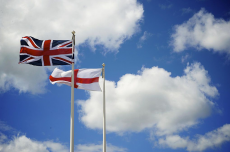
During this period the subject of empire became an ever more prevalent topic. Many variables had the potential to change public opinion positively and negatively towards imperialism. This included education in public and state schools, political parties and individuals, events such as the Boer war, entertainment and media. Also important were differing attitudes between classes and why some classes were more lenient to imperialism in comparison to others.
Gladstone was an important individual as he was the British PM from 1880-1886. Unlike Disraeli he was not an expansionist, he believed in free-trade, low taxation and desired to uphold peace. These are all indications that he preferred the model of informal-imperialism because informal empire meant that trading could occur, which low taxation and free trade would give incentive to do so. Also war makes trading between countries more difficult making retaining the peace crucial. This meant that he was popular with trading companies and industries that would buy raw materials from them to fuel their production lines. His approach to imperialism would also have been popular across all classes in Britain as low taxation would mean that every British citizen had increased wealth.
However during Gladstone’s second ministry events occurred that arguably created a split in opinion about imperialism. In 1881 the defeat of the British by the Boers at Majuba Hill took a blow at British patriotism because the idea that a relatively small group of farmers could take on the might of the British Empire and succeed was a shock to the public and politicians started to wonder if Britain was strong enough to maintain such an empire and the popularity of empire started to waver. This train of thought was probably encouraged with the granting of independence to the Boers in the Transvaal. Another event that caused much political tension was the bombing of Alexandria in 1882 ‘gunboat diplomacy’ it was seen by many as an unprovoked attack against
Egyptian defences. John Bright, an anti-war politician, resigned from the cabinet over the event. This stance drew attention to moral questions about empire and whether those who were in charge of the bombardment, such as Seymour who gave the order to fire, had the true interests of Britain at heart. It caused reduced political confidence in the British Empire as the defender of good and the bringer of civilisation.
The situation in Egypt worsened and Gladstone, in order to take Egypt before the French, sent landing parties to attack Alexandria and the Suez Canal soon after the bombardments. The reason why he wanted to take Egypt before the French was to secure the route to India via the Suez Canal. The invasion was a success despite Gladstone’s reluctance and meant that Britain had use of the Nile, Egypt’s rich raw materials such as cotton and the strategic importance of the Suez Canal. This was popular with the public because of the sense of British patriotism it gave them and with politicians because of the substantial gain in power that Britain now had over East Africa.
Image: By THOR (Summer Sky in Southsea England) [CC BY 2.0 (http://creativecommons.org/licenses/by/2.0)], via Wikimedia Commons

0 Comment:
Be the first one to comment on this article.